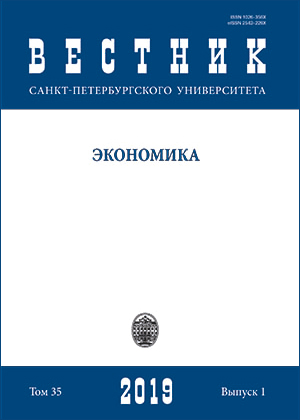Karl Marx’ s Theory of Money: historical analysis
DOI:
https://doi.org/10.21638/spbu05.2019.106Abstract
This article discusses the main provisions of the Marxist theory of money in the context of modern trends in economic science. The problem of money in Marxism rarely became the subject of scientific research in the Soviet period of history, even less attention is paid to it now. This is probably due to the fact that Marx does not have a holistic concept of money, in his works you can find only disparate and often contradictory statements about what money is, what is their origin. For example, Marx rejected the quantitative theory of money, despite the fact that it is the basis of most monetary concepts. At the same time, in Marx’s works one can find many constructive hypotheses and theoretical findings that have enriched economic science. The theory of evolution of Marx value forms is an undoubted contribution to the development of the labor theory of value. Marxist understanding of money has played an important role in understanding how the mechanism of the capitalist economy works. The Marxist understanding of money was not devoid of flaws and contradictions, like any other scientific theory. The article deals in detail with the main provisions of the Marxist theory of value and the associated theory of money. It is also shown that Marx’s theory of cost was the result of his application of the dialectical method of research, which helped to avoid logical contradictions of the labor theory of cost inherent, for example, for the theoretical constructions of Ricardo. The paper deals with the contradictions characteristic of the Marxist theory of money.
Keywords:
Karl Marx, dialectics, money, theory of value, theory of money, theory of the origin of money
Downloads
References
References in Latin Alphabet
Translation of references in Russian inti English
Downloads
Published
How to Cite
Issue
Section
License
Articles of the St Petersburg University Journal of Economic Studies are open access distributed under the terms of the License Agreement with Saint Petersburg State University, which permits to the authors unrestricted distribution and self-archiving free of charge.






